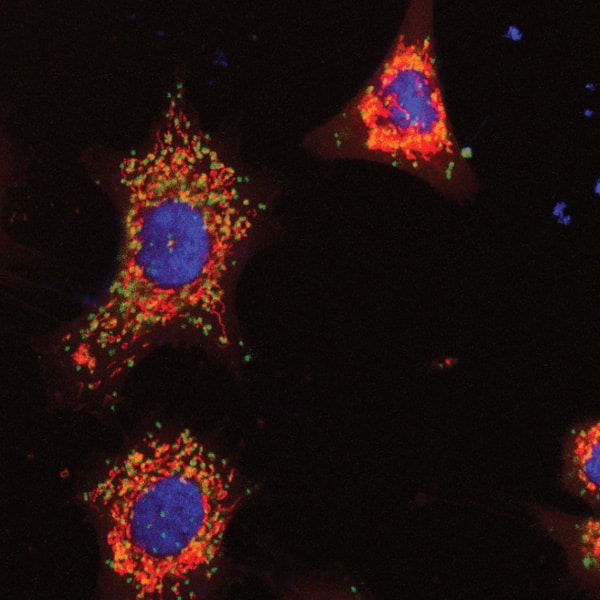Motivation is not hard to come by in Associate Professor Dan Gough’s line of work – he is reminded every time he’s asked what he does for a living.
“When I tell them that I am a cancer researcher it inevitably leads to a conversation about how they have been touched by cancer and how important the work is,” A/Prof Gough stated.
The disease A/Prof Gough is working to defeat is the most lethal cancer worldwide: lung cancer.
Immunotherapy: empowering the immune system
With his team in Hudson Institute’s Centre for Cancer Research, he has developed sophisticated models of lung cancer which allow them to model disease progression and observe response to current treatments in patients. These models can allow the team to test new drugs that will
- Be effective treatments on their own
- Improve the response to current care
- Reduce metastatic spread.
- Uniting fundamental science and technology.
A major focus is to improve on a new class of immunotherapy drugs which empower the patient’s own immune system to kill their tumour.
Insights into tumour formation
But sometimes it’s the nuts and bolts of cancer development and growth that can have the most impact.
“I have spent 20 years building better model systems and knowledge about tumour formation,” A/Prof Gough said.
“Scientists now have access to new technologies which, when combined with these models, enable the team to ask critical questions about tumour interaction with the other cells in the tissue that it is forming in.”
Uniting fundamental science and technology
A/Prof Gough’s work was recognised on several fronts throughout 2023, from fundamental discovery research into how tumour cells change the way they generate the energy required for growth (Cell Reports) to large drug-screening studies in lung cancer in the Journal of Experimental and Clinical Cancer Research (JECCR) and paediatric cancers (Cancer Cell).
Breakthroughs in chemotherapy resistance
The publication in JECCR identified why lung cancer stops responding to the most commonly used frontline chemotherapy – platinum. Importantly, the team identified a drug that restored platinum sensitivity, ultimately doubling the lifespan in a preclinical lung cancer model.
It is this type of fundamental research – that so often goes unnoticed – which identifies potential targets for cancer treatment and ultimately forms the basis of the next wave of cancer treatments.
“These insights will be critical to refining the new generation of cancer treatments.”

